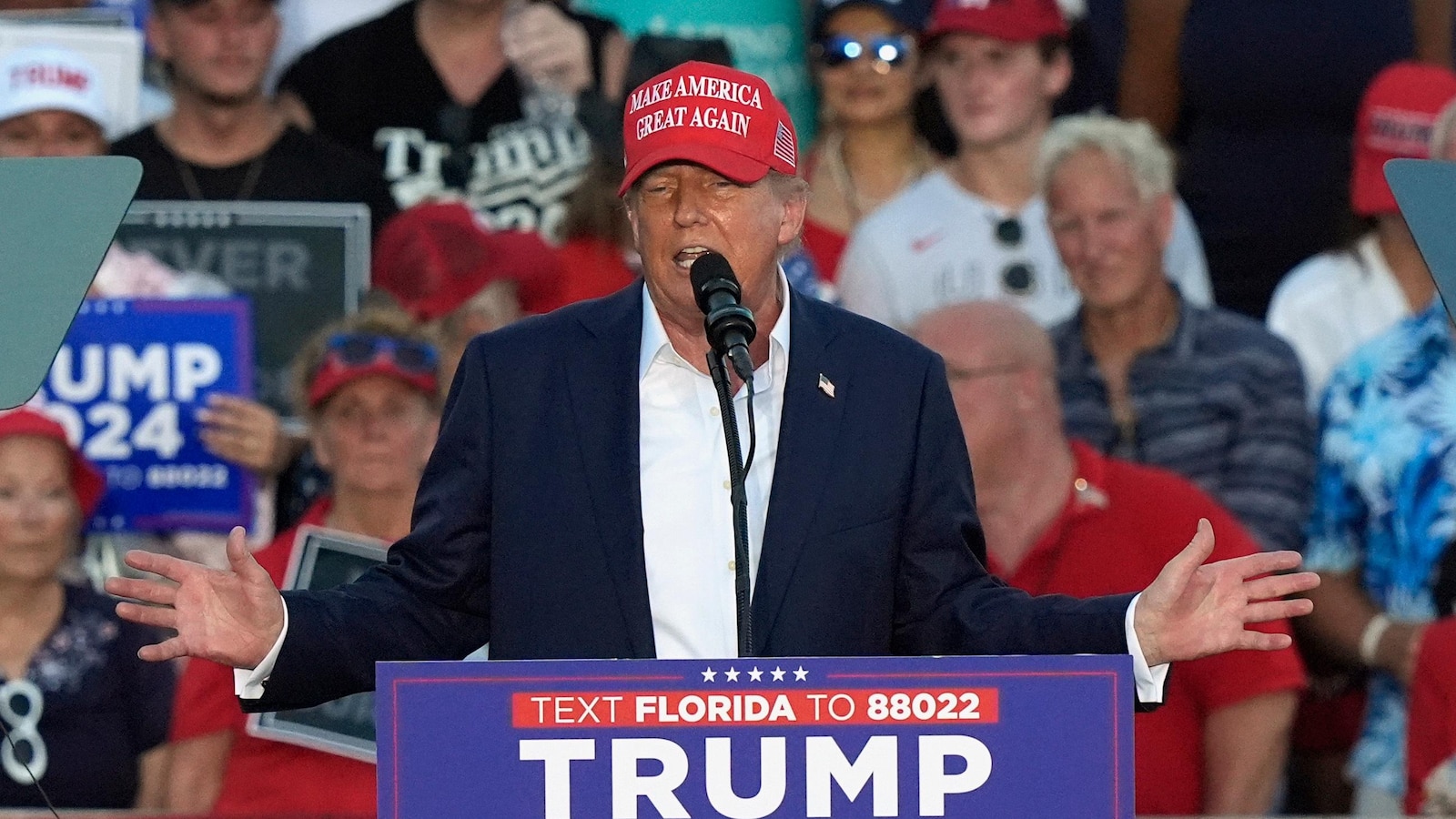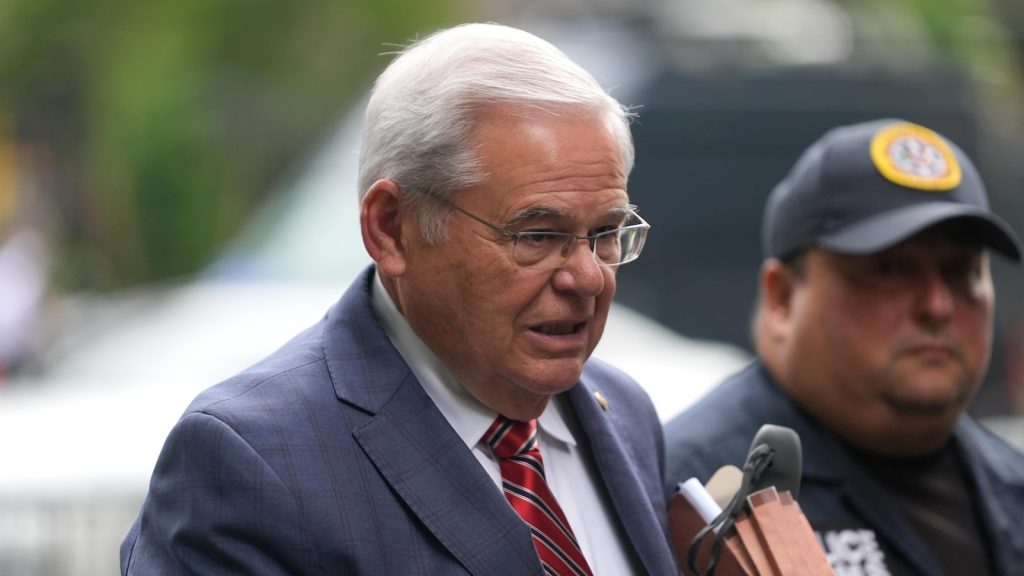







WASHINGTON — WASHINGTON (AP) — Donald Trump goes into the Republican National Convention with bold promises about the U.S. economy, but he has sketched out notably few details about how his plans would actually work.
The convention’s first day is still expected to focus on the economy even after Saturday’s shooting at a Trump rally in Pennsylvania in which the former president was injured.
If the program goes ahead as planned, expect speakers to argue that Trump’s agenda of sweeping tariffs and lower taxes would jump-start the economy.
The former president says he wants tariffs on trade partners and no taxes on tips and would like to knock the corporate tax rate down a tick. The Republican platform also promises to “defeat” inflation and “quickly bring down all prices,” in addition to pumping out more oil, natural gas and coal.
The platform would address illegal immigration in part with the “largest deportation program in American history.” And Trump would also scrap President Joe Biden’s policies to develop the market for electric vehicles and renewable energy.
Democrats and several leading economists say the math shows that Trump’s ideas would cause an explosive bout of inflation, wallop the middle class and — by his extending his soon-to-expire tax cuts — heap another $5 trillion-plus onto the national debt.
Trump has released few hard numbers and no real policy language or legislative blueprints. Instead, his campaign is betting that voters care more about attitude than policy specifics.
The Associated Press sent the Trump campaign 20 basic questions in June to clarify his economic views and the campaign declined to answer any of them. Spokeswoman Karoline Leavitt insisted that Trump best speaks for himself and directed the AP to video clips of him.
By contrast, Biden has an exhaustive 188-page budget proposal that lays out his economic vision, even as his campaign had increasingly devolved before Saturday’s rally shooting into questions about his age and whether he should remain the nominee after a self-defeating June 27 debate.
A recent analysis by the Peterson Institute of International Economics showed that deporting 1.3 million workers would cause the size of the U.S. economy to shrink by 2.1%, essentially creating a recession.
Stephen Moore, an informal Trump adviser and economist at the Heritage Foundation, a conservative think tank, said Trump is unique in that he’s already been president and voters can judge him off his record in office.
“You want to know what he’s going to do in his second term, look at what he did in his first term,” Moore said.
Democrats have argued that Trump would be more extreme in his second term, using his own remarks to say he would put independent federal agencies under his direct control and use the federal government to settle scores with his perceived enemies. The Heritage Foundation’s Project 2025 blueprint is a template for what a second term would look like, they argue, a claim that Trump has disputed.
But Moore said he believes that Trump would be pragmatic in office and focus on the needs of business to drive economic growth.
“There is an idea that it’s going to be like slash and burn — I don’t think it’s going to be a radical agenda,” Moore said.
Some of Trump’s plans have gotten bipartisan backing. Both of Nevada’s senators, Jacky Rosen and Catherine Cortez Masto, are Democrats who would like to ban taxes on tips paid to workers, even as the Biden White House favors a higher minimum wage for tipped workers.
Companies do like Trump’s ideas to cut regulations and further lower the corporate tax rate from 21% to 20%. The tax rate had been 35% when he became president in 2017. Democrats, by comparison, want a 28% corporate tax rate in order to fund programs for the middle class and deficit reduction.
But Trump has also floated huge tariffs that he says would protect U.S. manufacturing jobs. Biden preserved the tariffs on China that Trump introduced and went a step further by banning exports of advanced computer chips to China.
Companies generally dislike tariffs — which are taxes on imports — because they can raise costs, which are then likely borne by consumers. An analysis by the economists Kimberly Clausing and Mary Lovely found that Trump’s tariffs would cost a typical U.S. household $1,700 a year in what would effectively be a tax hike.
Trump’s tariff plans could worsen inflation as a result, even though the Republican says in videos that he would reduce inflation. It’s unclear how Trump would lower inflation, which peaked in 2022 at 9.1% and has since eased to 3% annually.
“The tariff issue is extremely important — and people are not paying enough attention to the magnitude of the Trump tariff policy, what the consequences would be,” said Clausing, a former Biden Treasury Department official and professor at the University of California, Los Angeles.
But tariffs might be more of a political winner than an economic strategy, according to a research paper earlier this year by the economists David Autor, Anne Beck, David Dorn and Gordon Hanson. The research found that the tariffs during Trump’s first term did not increase employment, but the tariffs did help Trump politically in the 2020 election in the industrial areas that lost jobs to China and other countries.
Clausing noted that Trump is proposing tariffs on more than $3 trillion of imports, a 10-fold increase over what he did in his first term. She noted that the tariffs could make it more expensive to bring in the raw materials that U.S. factories need while also raising prices for consumers already struggling with high inflation. She said she wants people to understand the risks Trump’s economic policies could pose before it’s too late.
““I think people will notice when everything gets wildly expensive,” she said. “This is going to be a huge disaster.”

